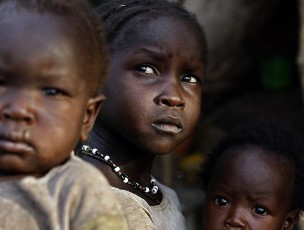Sudan rejects UNSC clause on negotiating with SPLM-N
May 9, 2012 (KHARTOUM) – The leadership council of the ruling National Congress Party (NCP) chaired by president Omer Hassan al-Bashir announced late Wednesday that it does not agree to elements of a recent United Nations Security Council (UNSC) resolution regarding negotiations with the Sudan People Liberation Movement North (SPLM-N).

Prior to the outbreak of clashes in Blue Nile state in Septmeber 2011, the head of the African Union High-Level Implementation Panel on Sudan (AUHIP) brokered a framework agreement in June 2011 between SPLM-N and Khartoum to end fighting in the oil-producing state of Southern Kordofan.
The accord was signed by SPLM-N chairman Malik Agar and Bashir’s top assistant Nafie Ali Nafie. But a few days later Bashir declared his rejection of the deal and berated his aide for signing it. He ordered the army to crush the rebellion in South Kordofan signaling his preference for a military solution to end the conflict.
But the Sudanese army has yet to bring down the SPLM-N in either state and particularly in South Kordofan where rebels have managed to threaten strategic towns several times.
This month the UNSC adopted a resolution under Chapter VII dealing with negotiations between Khartoum and Juba but also instructing the Sudanese government and SPLM-N to cooperate with AUHIP in seeking a solution on the basis of the June 2011 agreement.
Sudan’s foreign minister Ali Karti said following NCP’s meeting that this clause was “totally rejected” and that they will discuss the matter with the mediation and friends in the UNSC.
It remains to be seen whether this refusal will fall under non-compliance sanctions threat contained in the UNSC resolution.
The Russian ambassador at the UN Vitaly Churkin had said at the time that sanctions threat does not apply to conflict in South Kordofan and Blue Nile. But the U.S. ambassador Susan Rice disagreed with this interpretation.
“The entire operative part is under Chapter VII, and there are four “decides” paragraphs, including one-paragraph three-which relates to resolving the political issues that are at the root of the conflict in Southern Kordofan and Blue Nile” Rice said.
The SPLM-N issued a statement this week saying it welcomes the UNSC resolution while stressing that a “comprehensive peaceful settlement is the best choice for the Sudanese people and the parties to the conflict”.
“The entry point for the comprehensive peaceful settlement in Sudan is for the parties to address urgently and seriously the humanitarian crisis in the Nuba Mountains and Blue Nile immediately and to put into effect the tripartite agreement of the United Nations, African Union and the Arab League, which was signed by the SPLM-N long ago and avoided by Khartoum using different tricks to buy time. And in this regard, the SPLM-N is ready for a humanitarian cessation of hostilities that will enable the UN, African Union and Arab League to implement their proposal,” said the statement signed by SPLM-N Secretary General Yasser Arman.
The U.S. and United Nations agencies have been pressing the Sudanese government to agree on a joint AU-UN-AL plan to deliver aid to affected conflict areas in the two states. Some US and UN officials have expressed concern about the possibility that famine could be imminent.
Sudan is resisting allowing external aid groups citing security issues and also fearing that food would be used to aid SPLM-N rebels.
The UNSC resolution does not mandate acceptance of the AU-UN-AL aid plan.
(ST)
